How to get URL link on X (Twitter) App


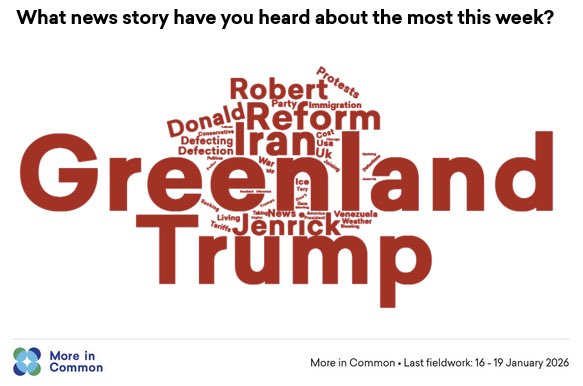

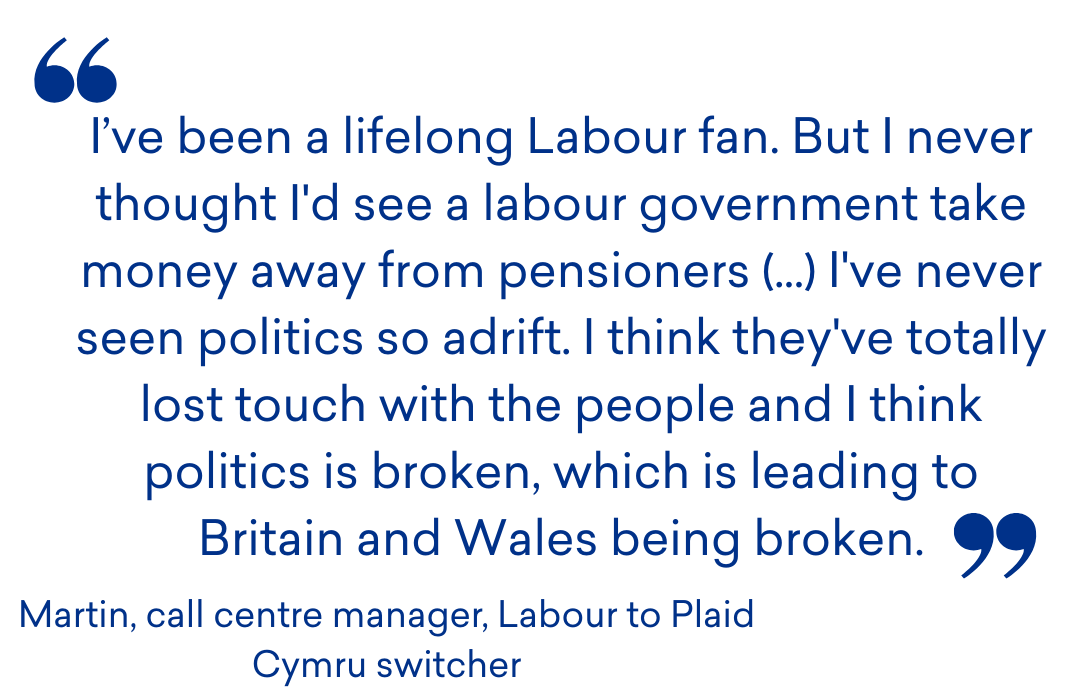
 To these voters the first year seemed little different to what had come before with the Tories - both in terms of policy and scandal. There was a sense of disappointment that the change people thought they were voting for last July hadn't materialised.
To these voters the first year seemed little different to what had come before with the Tories - both in terms of policy and scandal. There was a sense of disappointment that the change people thought they were voting for last July hadn't materialised. 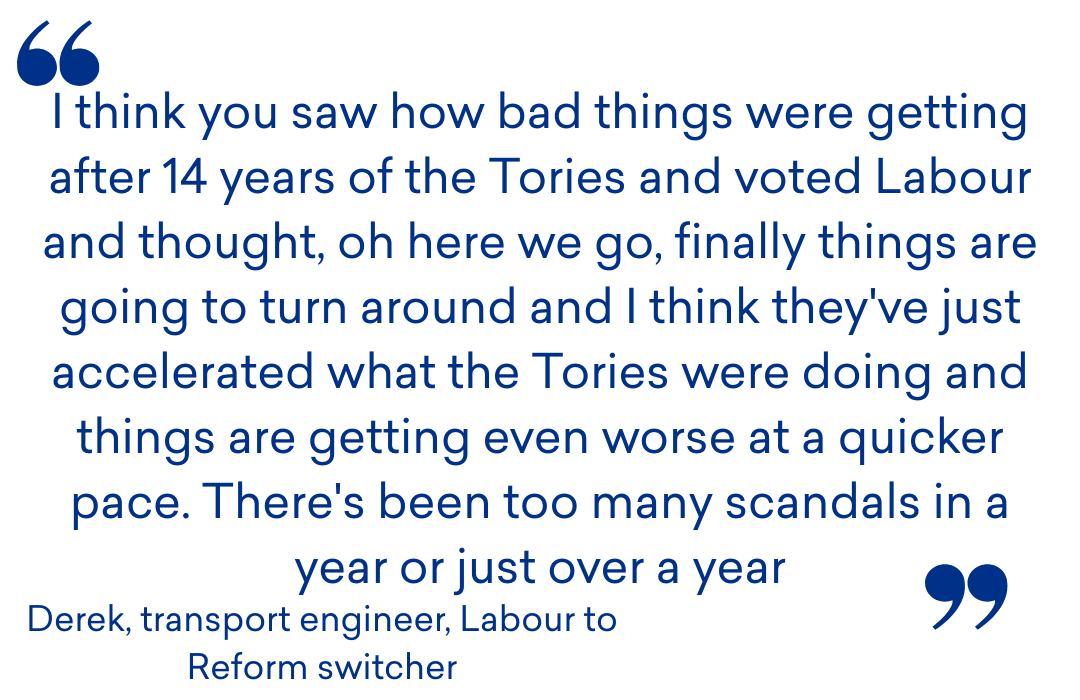
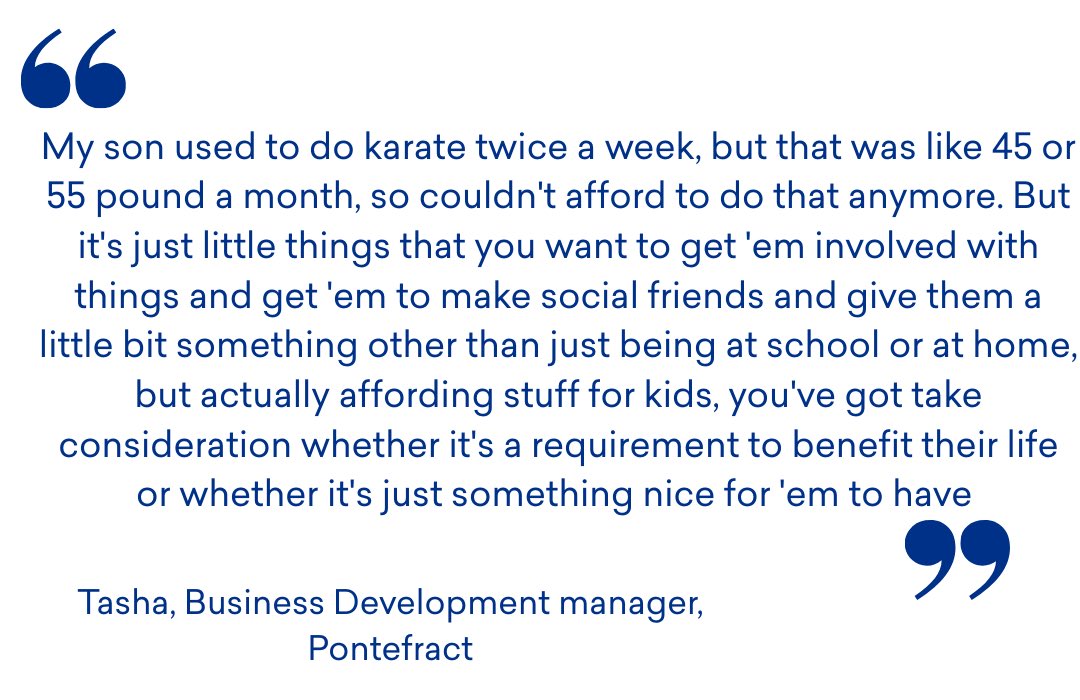
 I think what people miss is the extent to which is creates anxiety everywhere, no one on moderate incomes feels safe, one bad bill can tip people used to being about fine if not comfortable into a situation where they’re using a food bank.
I think what people miss is the extent to which is creates anxiety everywhere, no one on moderate incomes feels safe, one bad bill can tip people used to being about fine if not comfortable into a situation where they’re using a food bank. 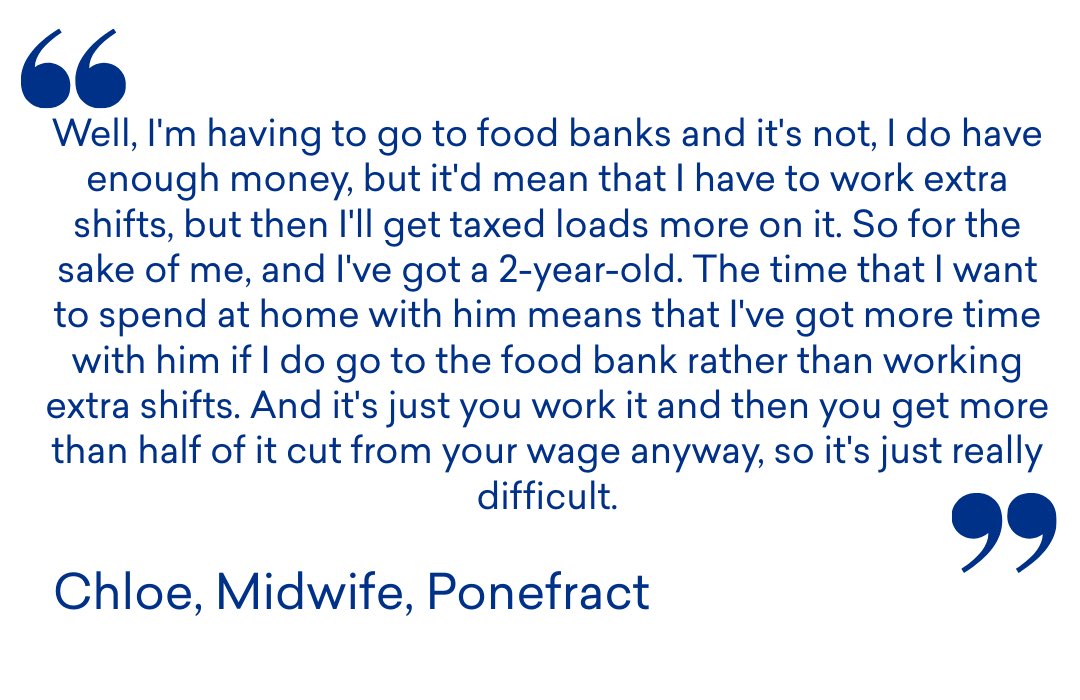
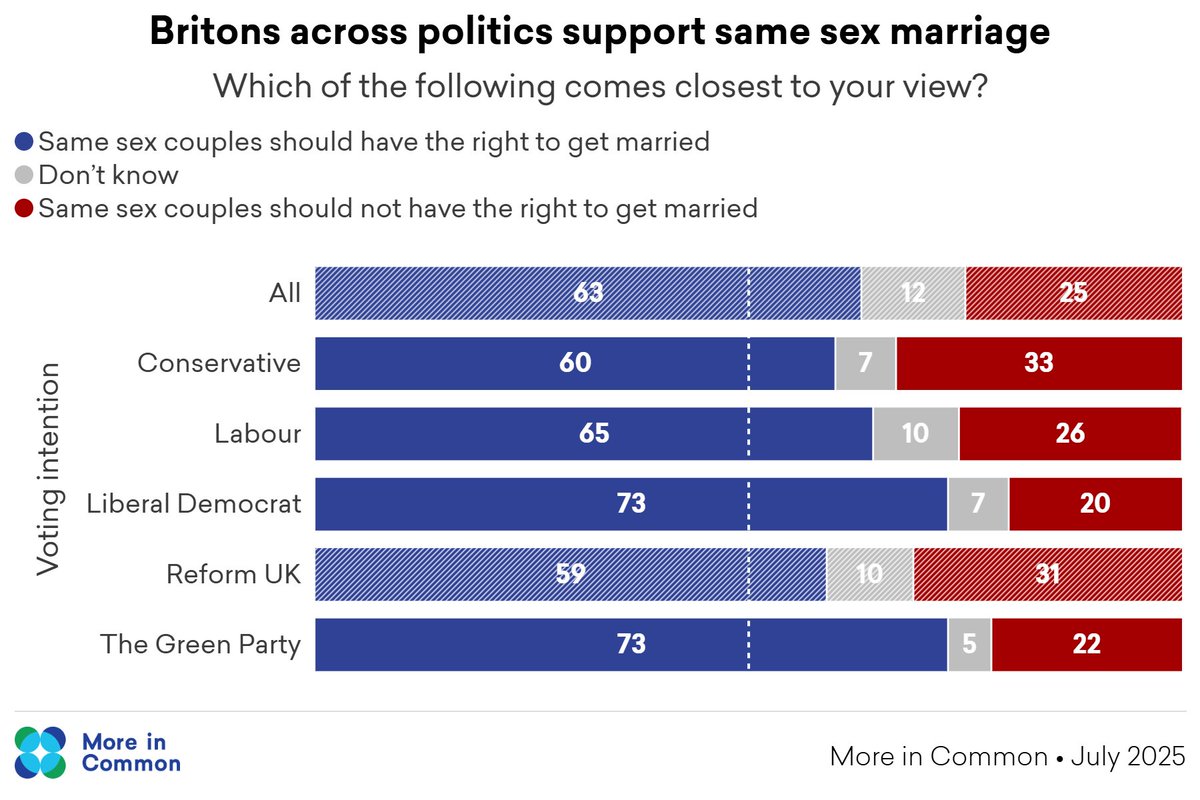
 This isn't some 'metro elite' view - in every region of the country support clearly outweighs opposition, and with the exception of London and the West Midlands support for gay marriage is at least twice opposition in every region (and x3 in North West, South East and Scotland)
This isn't some 'metro elite' view - in every region of the country support clearly outweighs opposition, and with the exception of London and the West Midlands support for gay marriage is at least twice opposition in every region (and x3 in North West, South East and Scotland) 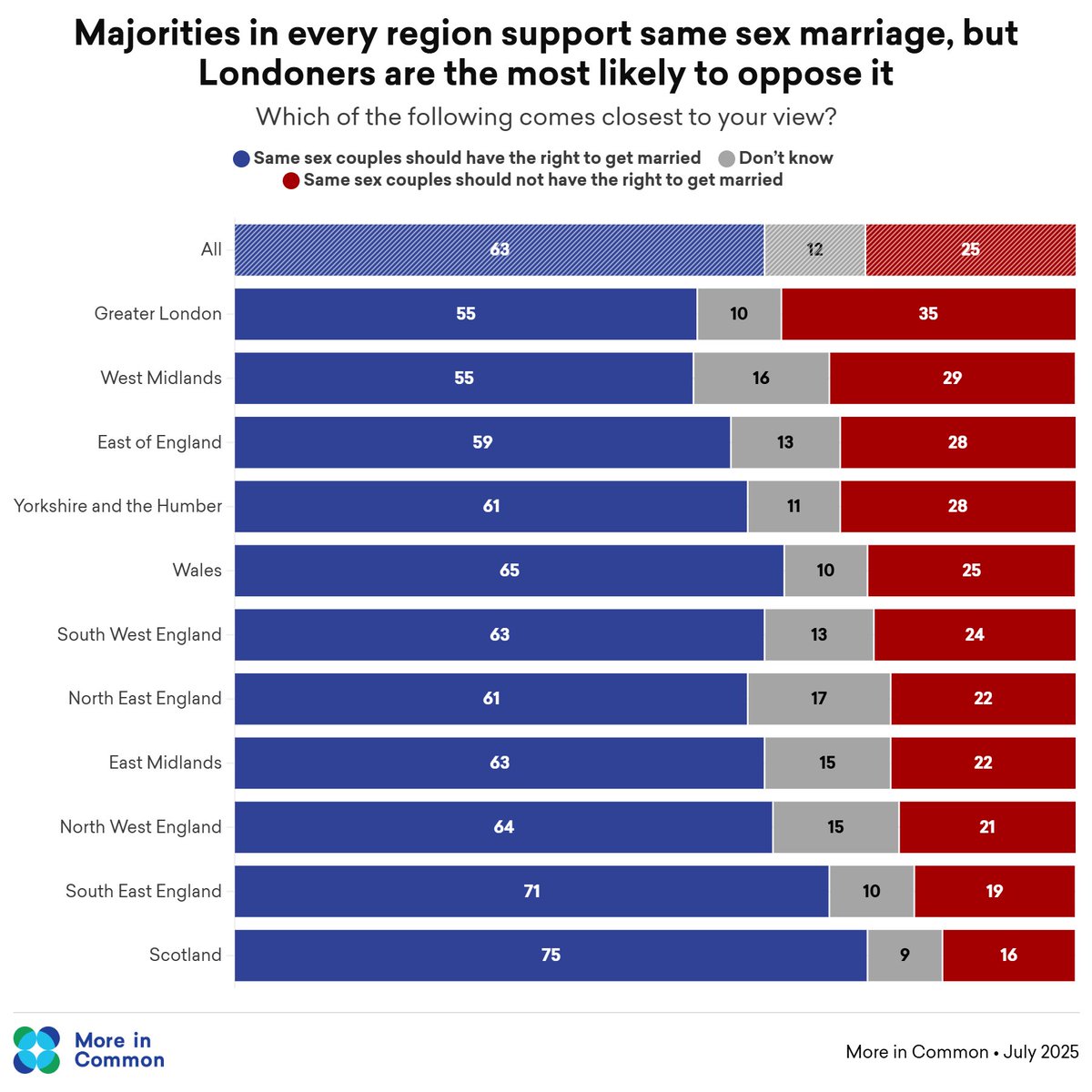
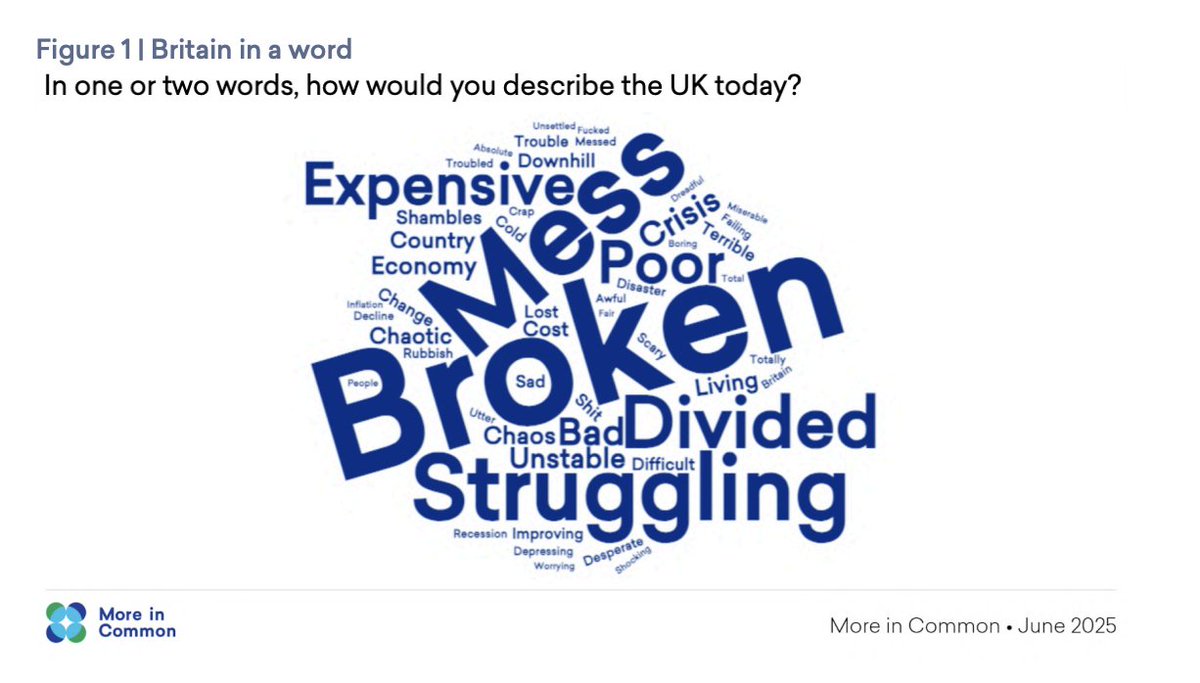
https://x.com/LukeTryl/status/1956684586542325924
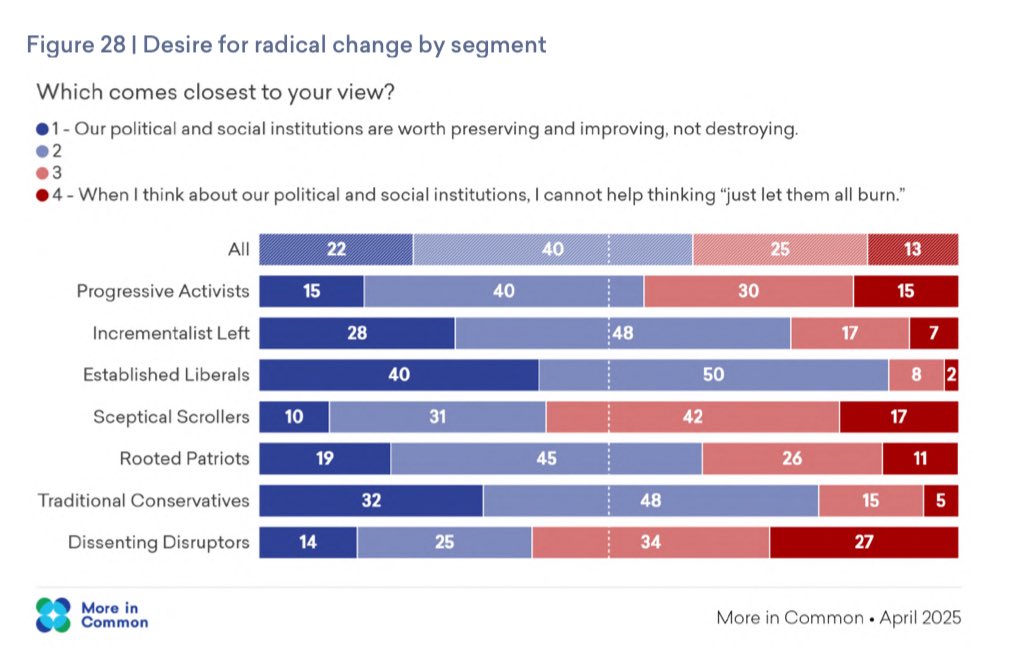

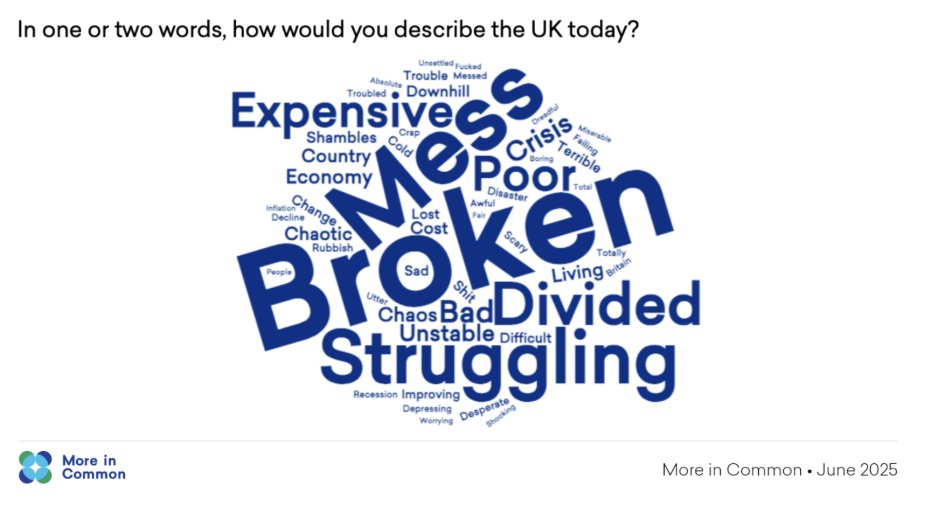
 Our report 'Shattered Britain' is our most comprehensive dive into British public opinion & attitudes yet. We identify the new fault lines of public opinion + how they create 7 new segments of Britain. Highlights in thread & read it all/take the quiz here moreincommon.org.uk/our-work/resea…
Our report 'Shattered Britain' is our most comprehensive dive into British public opinion & attitudes yet. We identify the new fault lines of public opinion + how they create 7 new segments of Britain. Highlights in thread & read it all/take the quiz here moreincommon.org.uk/our-work/resea…
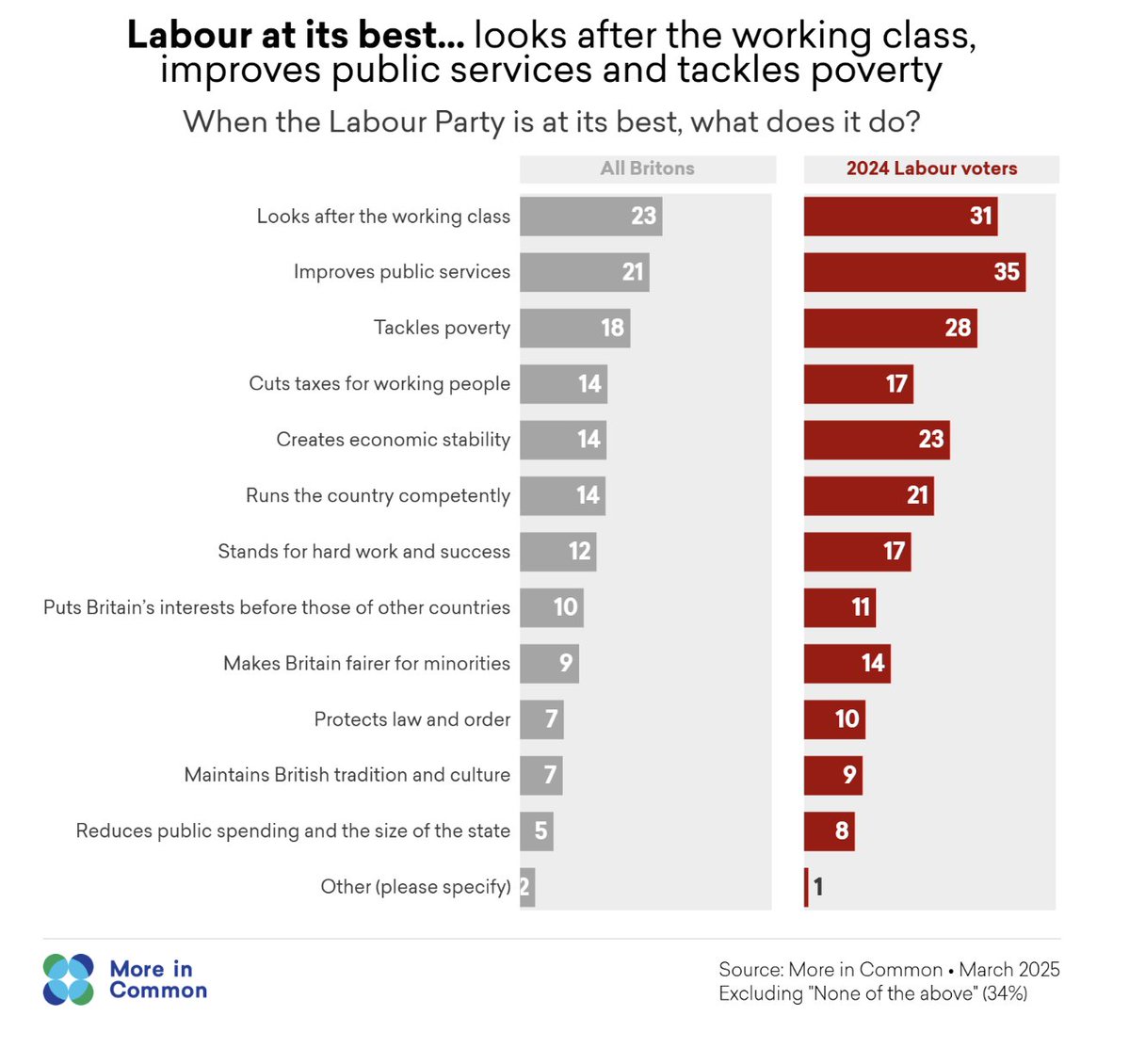


 With caveat this is hypothetical, people aren’t always good judges and so very much a starting point (and doesn’t take account of pacts etc) what seems to happen is a remaining chunk of Labour’s progressive vote peels off and the party cannibalises Green-left voters.
With caveat this is hypothetical, people aren’t always good judges and so very much a starting point (and doesn’t take account of pacts etc) what seems to happen is a remaining chunk of Labour’s progressive vote peels off and the party cannibalises Green-left voters. 


https://twitter.com/samcoatessky/status/1925078981805563979Different pollsters have slightly different splits of where Labour’s vote is going, our split is 12 Ref, 8 LD, 6 GRN, 4 Tory. Others have more going left or more going right.


 Support for reduction spans political divides, but Reform UK and Conservative 2024 voters are more likely to say there should be significant reductions (NB corrected data labels, previous swapped Con/Lab -apols!)
Support for reduction spans political divides, but Reform UK and Conservative 2024 voters are more likely to say there should be significant reductions (NB corrected data labels, previous swapped Con/Lab -apols!) 




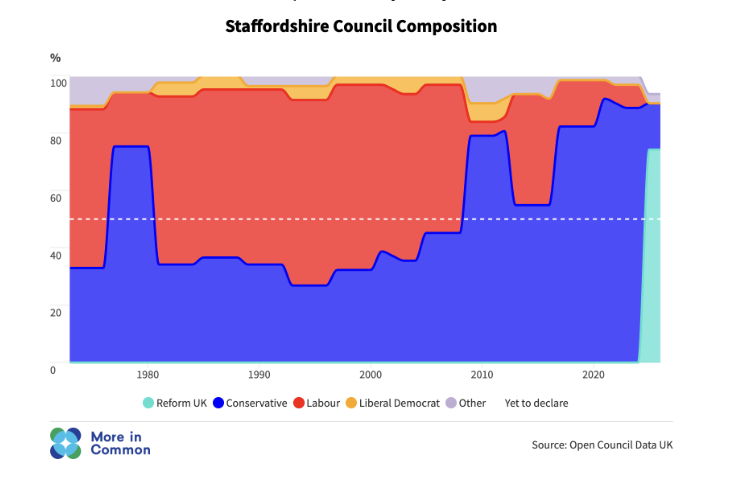

 We are a long way from a General Election, lots could shift between now and then, but it would be a mistake not to consider Reform a serious contender for government as things stand, winning in Doncaster, Runcorn, Kent, Staffordshire shows breadth of their support.
We are a long way from a General Election, lots could shift between now and then, but it would be a mistake not to consider Reform a serious contender for government as things stand, winning in Doncaster, Runcorn, Kent, Staffordshire shows breadth of their support.

 Other policies in high cut through high negativity cluster - disability benefit cuts, farmers inheritance tax and prisoner releases. This is the policy combo that along with perception of slow pace of change on eg NHS/cost of living that have led to disillusionment with new govt
Other policies in high cut through high negativity cluster - disability benefit cuts, farmers inheritance tax and prisoner releases. This is the policy combo that along with perception of slow pace of change on eg NHS/cost of living that have led to disillusionment with new govt 

 Views of politicians went beyond healthy cynicism ranging from them not getting it to being useless to being actively corrupt. This wasn’t a partisan thing, it applied to everyone Tory, Labour, Lib Dem, Reform, being part of the political class was more telling than party.
Views of politicians went beyond healthy cynicism ranging from them not getting it to being useless to being actively corrupt. This wasn’t a partisan thing, it applied to everyone Tory, Labour, Lib Dem, Reform, being part of the political class was more telling than party. 

 The full seat totals from the MRP are
The full seat totals from the MRP are
